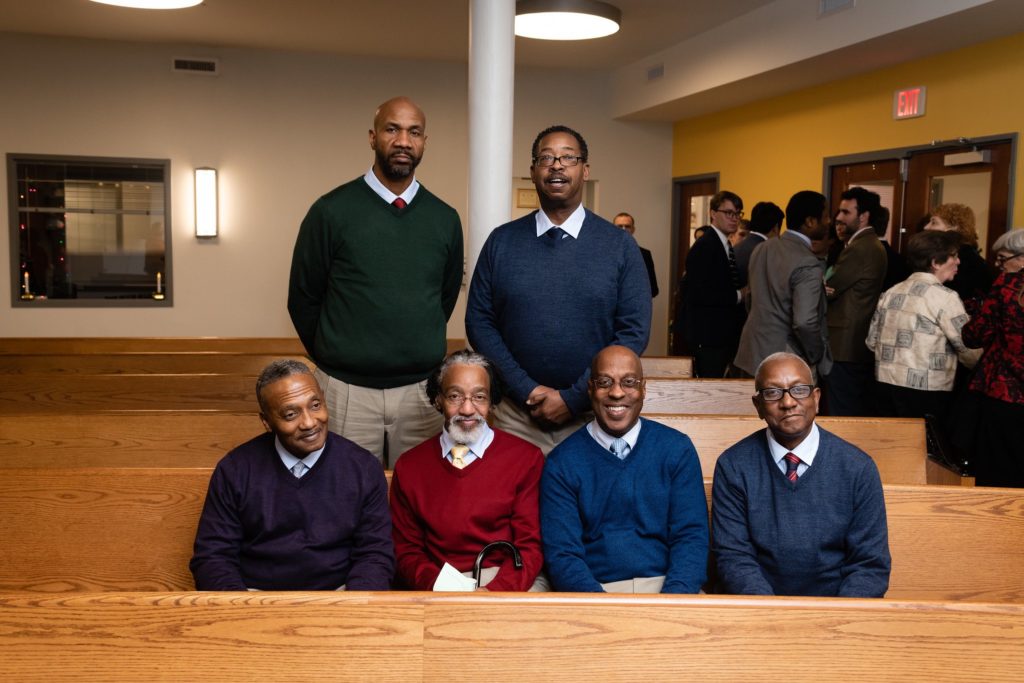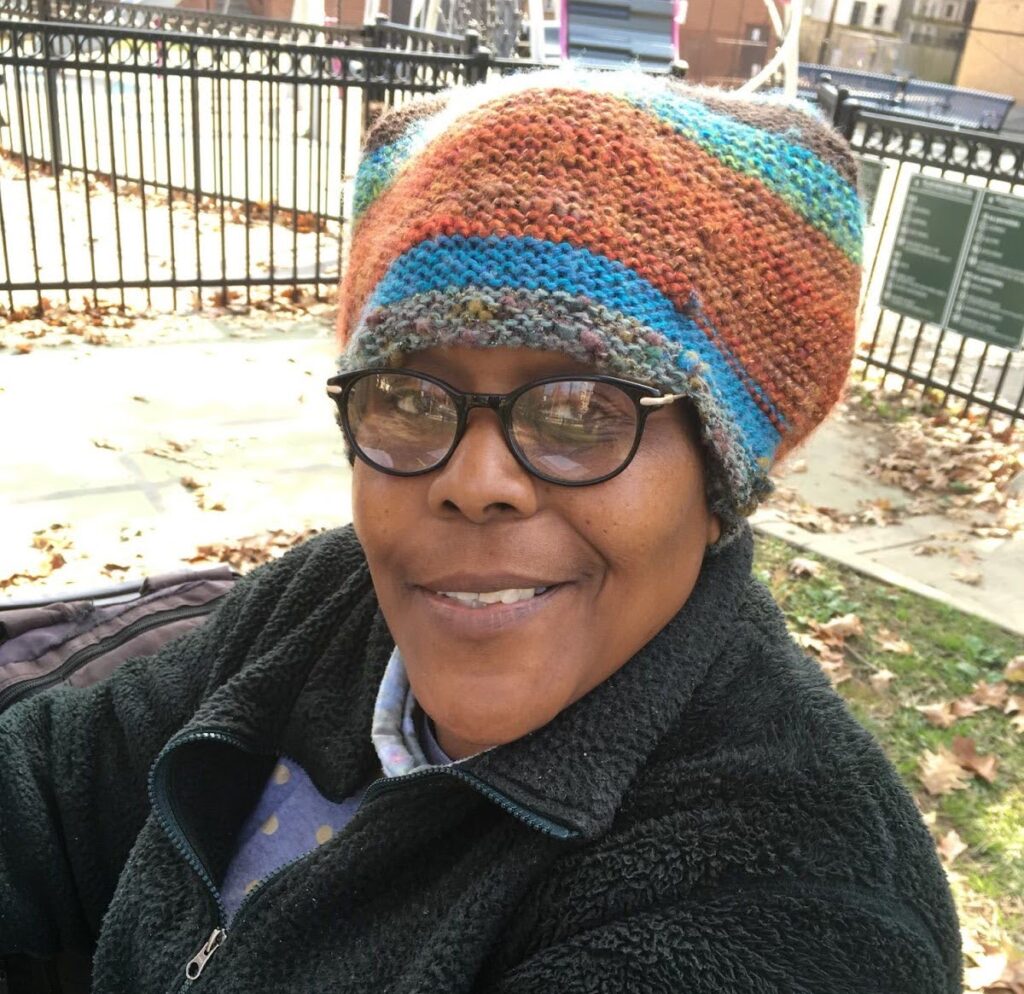In the refurbished basement of St. Aloysius Church on North Capitol Street, community members and parishioners gather for an intimate holiday dinner prepared by volunteer chefs as a prelude to a prayer service that will commence in the sanctuary upstairs.
It is clear this is a special occasion based on the festivities, the chatter, and the attire – but make no mistake, it isn’t a performance. This is a specific night of prayer and song based on a 101-year-old tradition that began in Cambridge, England.
The dean of King’s Chapel there, developed a way for residents from Cambridge University and the city to celebrate Christmas beyond the “standard” liturgy of the Church of England, according to the McKenna Center’s website. “By weaving scripture with song and drawing upon a variety of participants, this service not only became a way for people to begin healing from the recent devastation of World War I, but also, through annual BBC broadcasts, developed into a tradition which many communities adapted for their own Advent and Christmas celebrations.”
The evening Advent and Christmas celebration is a traditional ceremony that marries prayer to song for an evening of reflection and good will. One notable characteristic distinguishes the service at this little church at the edge of the Gonzaga College High School: the McKenna Singers. This group of homeless and formerly homeless men help sing, compose, and direct the service.

The gathering is hosted by the Church and its homeless services program, The Father McKenna Center, whose mission is to accompany and care for individuals experiencing homelessness, educate youth about homeless issues, and address families and seniors experiencing food insecurity in their neighborhood. The service provider has been guided by the Jesuit ethos of helping those in need through service and compassion since it was established in 1983.
Take Max Guinn, one of the McKenna Singers, who is a devout Catholic and a resident of the District currently experiencing homelessness.
“Homelessness is something that comes from making mistakes,” Guinn says, citing past problems with drugs and alcohol. He is adamant that the McKenna Center’s winter incentive, The Hypothermia Program, is not a shelter, but a program. “We have things we have to do in order to rebuild our life”
Guinn is right. The Hypothermia Program is an idea unique to the McKenna enter – it accepts up to 15 men who are discernibly able to end their homelessness and are provided with the resources and case workers to help them.
As a member of the Hypothermia Program, Guinn is thriving. “I’m working on rebuilding my life.”
Guinn excuses himself to get ready for the service. He and the fellow McKenna Singers – a fraternity of men experiencing homelessness who are a part of the McKenna Center – are changing into more formal attire.
We meet again in an auditorium adjacent to the McKenna Center offices. Guinn sits with his friends as they and the volunteers wait for instruction.
The person to give them that instruction is Father Philip Gunir. A priest with a graduate degree in conducting from Notre Dame, Gunir is excited for the forthcoming Lessons and Carols prayer.
Despite his enthusiasm and excitement, Gunir asks the McKenna Singers and other choir participants to “lean into the program,” and to think of the Lessons and Carols as a simple prayer service, not a special holiday show.
As the musicians rise to take a photo, Father Gunir asks everyone to “casually, imperfectly, walk together as one community” as they head upstairs towards the sanctuary.
Filing into the aisle between the pews, the singers face each other and have their backs to the crowd of parishioners. They begin with a Call to Worship, beginning with “O Frondens Virga,” and then “O Come Emmanuel.”

The next hour is made up of a series of admonitions, lessons, and carols. All are essentially biblical, but some are more traditionally spiritual and some are medleys made up of more contemporary songs. The first admonition recited underscores a message of hope and self-rejuvenation through a biblical allusion. The closing four verses – not a quatrain, but still poetic – are intended to guide parishioners and singers to a deeper self:
For each of us
There is a desert to travel,
A start to discover,
And a being within ourselves to bring to life.
This verse in particular coincides perfectly with Dr. Kimberley Cox’s vision for the McKenna Center. As the executive director of the McKenna Center, she understands the degradation and dehumanization often accompanying homelessness. This Advent ceremony, as well as the McKenna Singers program, was something she dreamed of doing when she was first hired five years ago.
“I dreamed about doing this because I really believe that singing together is one of the most uplifting things someone can do,” Cox explains. She also feels “that for people who are homeless, being able to accomplish something and have a feather in your cap” is no small matter; it proves that one is capable of achieving and inspires housing-sensitive people to believe in themselves again.”
With the help of Cortex McDaniel, the director of the McKenna Singers, Cox was able to bring this dream to life. McDaniel, who has also experienced homelessness, “knows what it took for him to stop being homeless, so he shaped a program around the steps he knew would be effective.”
As the prayer service concludes with “Joy To The World,” Cox is both satisfied and anxiously looking for loose ends to tie up. People come up to her telling her how much of a success it was. Cox believes them but knows that the advent service means something different to the parishioners and the performers.
“This is a real demonstration of the fact that they can do something incredible…and it helps them on their journey,” Cox says, “We’re trying to give them [men experiencing homelessness] a sense of deserving–you’re going to have to work hard–but you deserve more and you can achieve it.”







